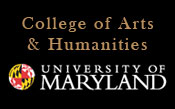


| New
Directions: Exploring Identity in the Early Modern Period
Abstract: Becoming a White Man: Slavery and Identity in the Seventeenth Century English Caribbean. Presented by: Susan Dwyer Amussen, History, The Union Institute This paper examines the ways in which race and gender were intertwined in the identities of English settlers in the Caribbean in the seventeenth century. While the paper focuses primarily on Richard Ligon's History of the Island of Barbados (1657), it also draws on other records of Barbados and Jamaica to show how Ligon's experience illuminates a more general pattern. The paper argues that a sense of being white–not just English, but European–emerged rapidly in the context of a slave society. This racial identity was highly sexualized and always gendered, defined in relation to English assumptions about the proper deportment, work and behavior of women and men–standards that slaves could never meet. The patterns of social relations, and the assumptions about identity, that emerged in this context simultaneously built on, and reshaped, concepts of identity in England at the time. By looking at the formation of racial identity, this paper also examines the development of social ideals and social relations more generally. |
|

